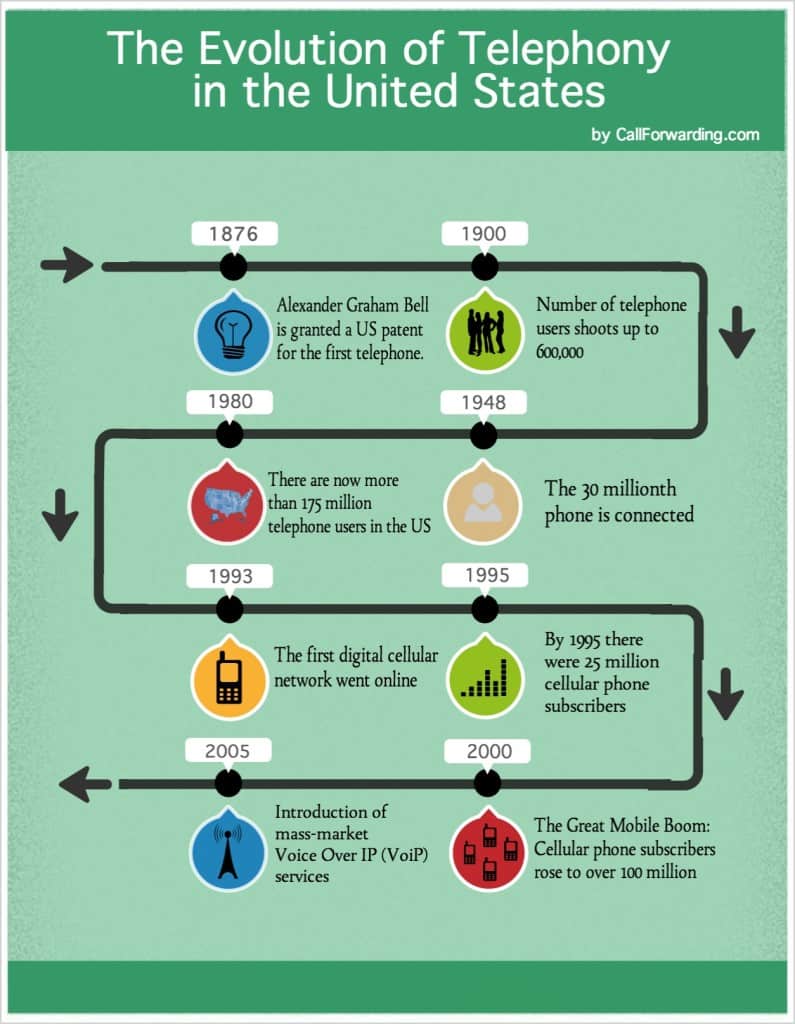Why Businesses are Switching to VoIP
VoIP offers businesses cheaper connectivity worldwide, provides unlimited mobility, and offers additional features. Landline use is rapidly declining.
The year 2005 introduced a major development to the world of telephony: Voice Over Internet Protocol (VoIP). For the first time in history people could place and receive telephone calls by using their broadband internet connection. I’m almost certain that when Alexander Graham Bell invented the telephone in 1876, he didn’t foresee how much his invention would evolve.
Since its introduction, the use of VoIP by businesses has been on the rise. But why switch from traditional telephony services to VoIP? What makes this type of service sought after by both small and large businesses? Well, the answers shouldn’t surprise you: It’s cost effective, allows for unlimited mobility, and offers additional features that traditional telephony doesn’t support.
Cost Effective
Business VoIP telephone systems strictly operate via the Internet, which offers cheaper, easier and effective connectivity worldwide. It offers lower costs per seat and reduced long distance fees. Additionally, some traditional PBX providers require a downpayment of capital. With a VoiP service, you pay as you go because it’s sold as a service rather than a product. This means no large, upfront equipment costs, as the hardware is owned and operated by your VoiP provider.
This is extremely beneficial to start-up companies that are restricted by small budget. Why invest 50-75% of your capital just on equipment?
Unlimited Mobility
Because VoIP only requires a computer, soft phone, and stable internet connection to make or receive calls, you don’t need to have typical brick and mortar location. All of your employees can work remotely, therefore your geographic location is irrelevant. You and your employees can be scattered throughout the globe and still provide superior customer support.
Additional Features
VoIP offers customizable features that POTS (plain old telephone systems) don’t, such as:
- IVR
- Auto Attendant
- Call Recording
- Time of Day Routing
- Voicemail to Email/Fax
There are also third-party applications and new tools available to deliver truly unified communications to you. And as your business grows, you always have the option of adding more features to your VoIP service. Almost all of these applications are being created specifically for VoIP telephony. Which begs the question, “what’s going to happen to traditional telephony?”
The Decline of Landlines
Traditional telephony, aka the landline, has been on the decline since mid-2005 when the cellular network really took off. This downward slope has led many to believe that the landline is on its way to becoming obsolete. According to a recent article by Software Advice, “POTS will eventually become a thing of the past, and businesses need to prepare for the transition. The transition is already underway; the final decommissioning of the POTS will be a mainly symbolic event.”
Switching to VoiP is simple and it provides additional savings, mobility and features not offered by traditional telephony services.

